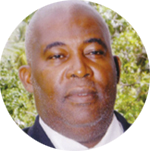
WITHOUT help, beginning teachers and some others too, will maintain the status quo, by teaching as they remember being taught. And if we do not reach those teachers, they will repeat the same cycle generation after generation, and education would be going nowhere.
Teacher training is one of the best ways to let teachers know that the Education System values their service and wants them to succeed and to stay in the system.
The Ministry of Education and schools should awaken teachers to the fact that a magnificent future awaits them.
How could we change the culture of education?
Now culture is a way of life of a group of people, an institution, a community; the behaviour, beliefs, values they accept generally and passed along by communication and imitation, from one generation to the next.
Education reform can be accomplished by changing the culture of new teachers coming into the profession.
Now let me inform you that change in culture should commence with an effective induction programme. This is a structured programme that takes place before the teacher enters the classroom.
Indeed, during the time that I was in mainstream education, principals spoke very loudly about the need for incoming teachers to receive a course of training prior to entering the classroom. However, teachers received acceptance or scholarships to pursue higher learning after school has reopened. As a result, principals have no choice but to accept neophytes in the classroom. And principals now have the dual role of training or inducting those new teachers and managing the continuing teachers on their staff at the same time.
Now principals are in fact teacher trainers. However, they would be ready to provide teacher training for members of their staff as a continuous programme of training which should be part of the school’s Strategic Plan.
Indeed, our first consideration for a change in the culture of education, is for the teaching Service Commission to appoint teachers early enough to allow those new teachers to pursue a vigorous induction programme prior to the reopening of school, and to approve the transfer of teachers to other institutions or those who are leaving altogether to be relieved of their classroom duties early enough to facilitate the teacher turnover.
By turnover I mean the rate at which teachers exit schools.
Similarly, the Training Division of the government service, should inform successful candidates, who would wish to pursue higher learning to be relieved of their classroom duties early enough to facilitate an effective management process,
Now let us come to the content of the proposed induction programme. At the beginning of the programme, the teachers must be led to understand fully the proud word ‘Teacher’, since they have chosen to become a teacher.
A teacher is a poet. As the teacher speaks and communicates with the students, the language should ignite a passion for learning. As I write, I remember Mr. Gregory Burton, deceased, my former class teacher who taught the class the poem: “A City’s Death by Fire, by our very own Sir Derek Walcott. Teacher Burton would intonate: “After that hot gospeller has levelled all but the churched sky, I wrote the tale by tallow of a city’s death by fire; Under a candle’s eye, that smoked in tears, I wanted to tell, in more than wax of faiths that were snapped like wire…” Teacher Burton’s pronunciation and intonation emitted a strong desire to learn poetry.
Even as I write, I can ‘rattle out’ that poem!
A teacher is a physicist who brings logic, reason and wonder to the properties, changes and wonders of our universe.
A teacher is a master of composing as he or she conducts and harmonizes individuals’ thoughts and actions.
A teacher is an architect as he or she provides each student with a solid foundation that provides a vision of the magnificent structure that is about to emerge from his or her students.
A teacher is a diplomat and ambassador of tact and sensitivity as he or she facilitates positive interactions among the varying personalities, cultures, and beliefs in the classroom.
A teacher is a philosopher as his or her activities and ethics convey meaning and hope to the young people entrusted in his or her care, who look to the teacher for guidance and example.
By ethics I mean the morals and principles that govern a person’s behaviour.
As you may have realised, the teacher has to be well grounded in all disciplines if he or she has to stand out as an effective teacher, and one who can bring about change or become an agent of change.
Now, the effective teacher must be proficient in the three characteristics of an effective. The three characteristics of an effective teacher are: (a) An effective teacher has positive expectations for student success; (b) An effective teacher is an extremely good classroom manager; and (c) An effective teacher knows how to design lessons for student mastery.
Now positive expectations simply mean that the teacher believes in the learner and that the learner can learn.
Classroom management consists of practices that a teacher uses to maintain an environment in which instruction and learning can occur.
Lesson mastery is the student’s demonstration that a concept has been understood or a skill can be performed at a level of proficiency determined by the teacher.
Student success in the subject matter of the class, will depend on how well the teacher designs lessons and checks for mastery.
To be continued.












